Major Adjustment at Web3 Foundation: Bill Laboon Appointed as Vice President of Ecosystem, Unified Strategic Planning, and Launch of the Polkadot Agents Program!
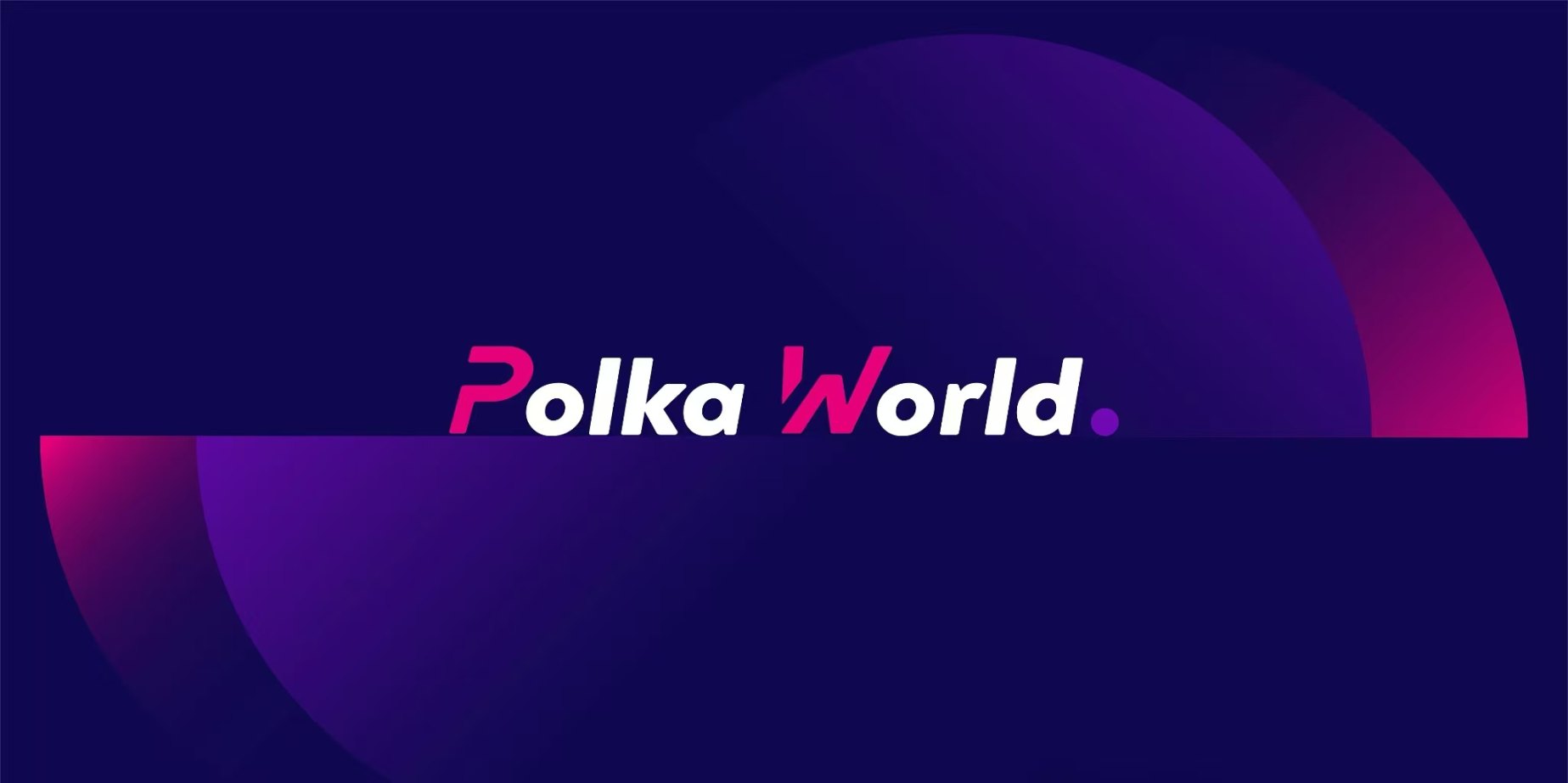
Within the Polkadot ecosystem, the Web3 Foundation is often misunderstood as the "official governing body," but in reality, it has always adhered to a more fundamental role: serving, coordinating, and driving the implementation of the Web3 vision. As the ecosystem continues to evolve, the Foundation's organizational structure is also constantly being adjusted. Recently, Bill Laboon was appointed as the Foundation's Vice President of Ecosystem, marking the Foundation's attempt to bring ecosystem development, funding mechanisms, community collaboration, and technology promotion under a more unified strategic perspective.
From education and governance to now overseeing construction and ecosystem growth, Bill's new role is not just a promotion, but also reflects how the Web3 Foundation is rethinking its position within the decentralized ecosystem. In this episode of Space Monkeys, we start with Bill himself to discuss how the Foundation is viewing the future of Polkadot—as well as the shared destiny of Kusama, JAM, and the entire Web3 world.
As the program is quite lengthy, we will divide it into two parts. This article is the first half! The main topics include:
- Although a lot of resources have been invested in Polkadot, this is not the Foundation's entire mission
- The Web3 Foundation's new strategy: unifying ecosystem narrative and restructuring connections
- Launching the Polkadot Agents program
Continue reading to see all the content!
Although a lot of resources have been invested in Polkadot, this is not the Foundation's entire mission
Jay: Space Monkeys! Today we welcome back our old friend Bill Laboon—now the Vice President of Ecosystem at the Web3 Foundation. Since his last appearance, there have been many new developments in the Polkadot ecosystem, which we will discuss one by one in this episode. Bill, welcome back!
Bill: Thank you, I'm very happy to be here again.
Jay: Many people have noticed that you’ve been especially active this year—you’ve always been busy, but your recent activities have been particularly frequent. Just a day or two before we recorded this podcast, you officially announced your new position at the Web3 Foundation—VP of Ecosystem. That's big news. Your previous role was focused on education, right?
Bill: Yes, my previous position was Director of Education and Governance Projects, mainly responsible for OpenGov-related work, technical education content, and coordinating support and staking teams, such as assisting with the operation of decentralized nodes. Of course, each of these teams has its own leader; my main role was to provide strategic guidance.
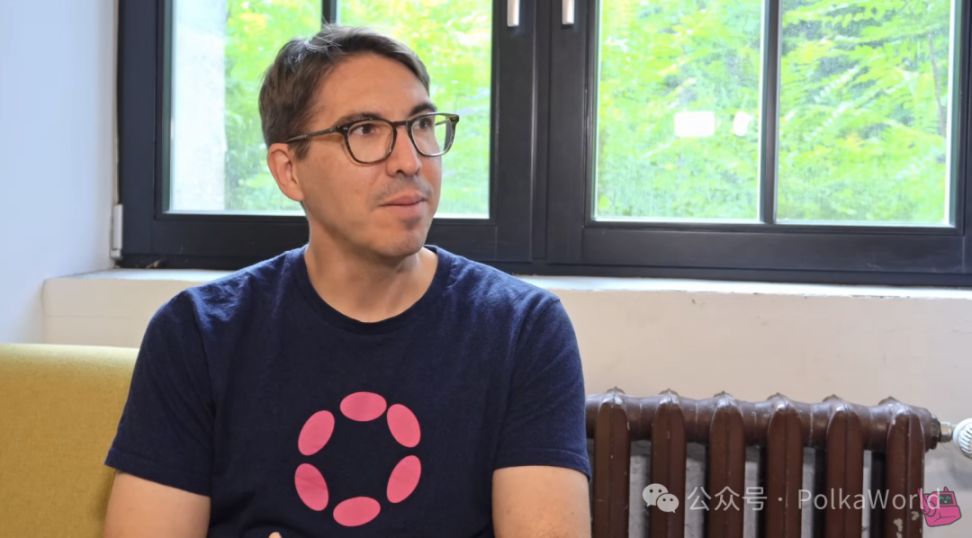
My new position now integrates the ecosystem building, community engagement, and OpenGov advancement I have always been involved in, together with funding, investment, and business development on the construction side. Previously, these tasks were handled by different teams; now we hope to unify them under a single strategic framework and advance them collaboratively.
Jay: So, from users to developers, from community to investment, all of these are now coordinated by you?
Bill: You could put it that way. We want to promote the development of the Polkadot ecosystem from a more macro and strategic perspective.
Because whether it's community members, Polkadot users, OpenGov participants, or internal and external developers, they are all indispensable parts of the ecosystem. We need a more coordinated mechanism to support and guide these key groups to grow together.
Jay: This is key: many people now mistakenly believe that the Web3 Foundation is the "official foundation" of Polkadot. This is actually influenced by traditional crypto projects—many projects are fully driven by a foundation, which manages decision-making, governance, and business development. So people naturally compare the Web3 Foundation to such a role, mistakenly thinking it should "manage everything." But in fact, the Web3 Foundation was never positioned this way from the start.
Bill: That's right. If you understand our mission, you'll know that we are a Stiftung, which in German means "foundation" or "purpose-driven institution." We are not a profit-seeking company, but exist to achieve a clear goal: to promote the development of a decentralized internet.
Although we have invested a lot of resources in Polkadot, this is not our entire mission. For example, the Web3 Summit is not a conference held for Polkadot—in fact, many attendees have never even sent a transaction (extrinsic) on the Polkadot chain, and are not familiar with the ecosystem. They come here to jointly promote the popularization and implementation of the Web3 vision, which is the true core of our mission.
Our role in the ecosystem is also different from an "executive agency." For example, with OpenGov, any changes must ultimately be decided by a vote of DOT-holding community members. We are well aware of this and implement this philosophy in our own actions—before making any decisions, we proactively seek the community's input and respect their wishes.
Take Kusama's new vision as an example: we didn't just announce "this is our plan," but first floated the idea to the community to see if everyone supported it. Similarly, with the Polkadot Agents project, we didn't force it through, but first asked the community, "Do you need such a program?" We have never been the order-taker for Polkadot or OpenGov, but if we are to do something for Polkadot, we must ensure it is truly what the Polkadot community wants.
At the same time, I hope everyone understands that the Web3 Foundation's goal is not limited to serving Polkadot, nor is it just about responding to the needs of the Polkadot community. Our real vision is to drive the construction of the entire Web3 world.
Everything we do through Polkadot, Kusama, JAM, and funding other projects is for a common goal: to let users truly own their data and autonomy in the decentralized world.
The Web3 Foundation's new strategy: unifying ecosystem narrative and restructuring connections
Jay: This is also why I think your new position is especially meaningful. The Web3 Foundation's mission is to promote a decentralized internet, and Polkadot and Kusama happen to be the key infrastructure for realizing this vision. Many DOT and KSM holders have long called for a clearer ecosystem direction, and I believe the Web3 Foundation is fully capable of providing such strategic guidance.
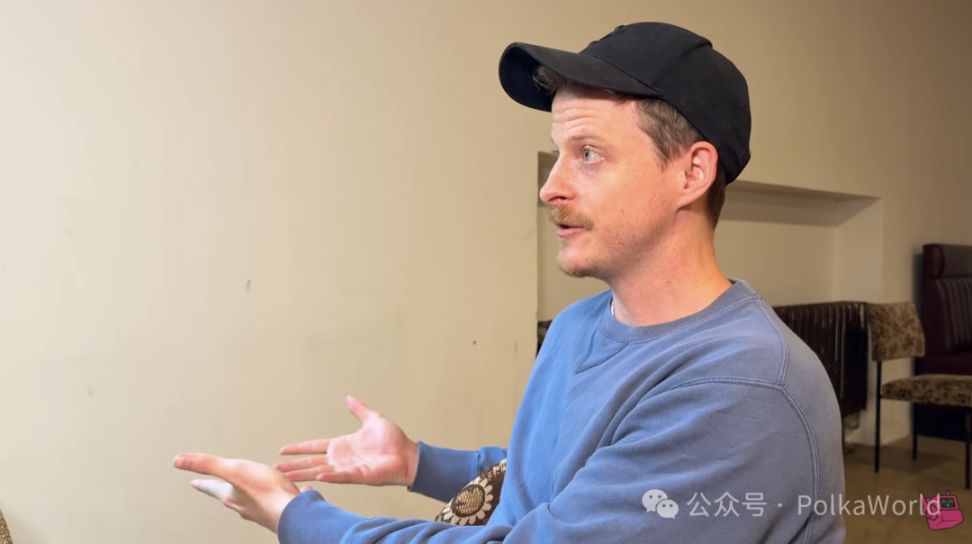
You are a highly forward-looking figure in the community—active on forums, frequently appearing on our AAG shows, and always patiently responding to private messages. Everyone is very familiar with you. This appointment is good news for everyone and an opportunity to unite the ecosystem as one.
Bill: This is exactly the direction I want to promote. Decentralization does not mean everyone acts independently. I have talked to many community members and have indeed felt a common problem: a lack of coordination.
We are not here to "lead" everyone, but to drive Polkadot's success. And I believe the way to achieve this goal must be based on consensus, collaboration, and a sense of purpose.
Although I just took office and many details are still being planned, I have already started to push in this direction. We are sorting out and analyzing: what are the core issues that everyone generally agrees on? Which things should be prioritized? Our model is still decentralized, but I hope to play the role of a "coordinator."
In the past, I was responsible for OpenGov, community development, and funding programs, so this new position is not unfamiliar to me. I have been involved in building Polkadot since 2018, before the mainnet even launched. Over the years, I have seen many pain points and bottlenecks in the ecosystem, accumulated a lot of thinking about systemic issues, and know what is hindering developer participation and affecting ecosystem expansion.
This position now allows me to coordinate and advance from both the user and developer perspectives with greater strategic vision. I sincerely hope this will bring about a paradigm shift in the ecosystem. This may sound ambitious, but I truly believe it: what the Polkadot ecosystem needs most right now is a clear North Star—a unified direction, clear strategy, and clear signals, so the entire community can work toward the same goal.
Our goal is to propose a clear strategic blueprint within the next one to two months, form a unified external message, and establish a core goal recognized by the entire community. I hope we can jointly push this ecosystem to a new stage.
Jay: I have always felt that our ecosystem is truly "decentralized." This means that even if a core node has a problem, or even if the coordination mechanism completely fails, the ecosystem itself will not collapse. Even in the worst-case scenario, there are still enough tools and mechanisms for others and other organizations to step up and take over.
This distributed underlying structure is like a safety net for Polkadot, allowing us to remain stable even in a crisis, unlike some ecosystems where the collapse of the foundation leads to the entire system falling apart. Our architecture is built for longevity. And what you are promoting now is precisely strengthening this net's resilience, which is very important.
Bill: I completely agree. Decentralization brings many advantages, but of course, there are challenges. But the core advantage is that the community can quickly spot vulnerabilities and proactively fill gaps.
Even if one day the Web3 Foundation really ceased to exist—of course, I'm not saying that's a good thing—the Polkadot ecosystem would still have many distributed talents, knowledge, and resources. For example, the Technical Fellowship, numerous project teams, and those always active on the community front lines. Not to mention the on-chain treasury reserves worth over 100 million dollars (I'm not sure of the exact figure, but it's definitely much more), plus many people passionate about governance who are willing to devote themselves to putting resources to work for ecosystem development.
So I especially agree with what you said: Polkadot is like a tightrope walker, and the decentralized architecture is the safety net that can catch it at any time. Even if unexpected situations arise, there will always be someone who can step up and try innovative solutions—like changing moves, walking on hands, or parkouring across the bridge... Because there is a net below, the system's resilience is far stronger than people imagine.
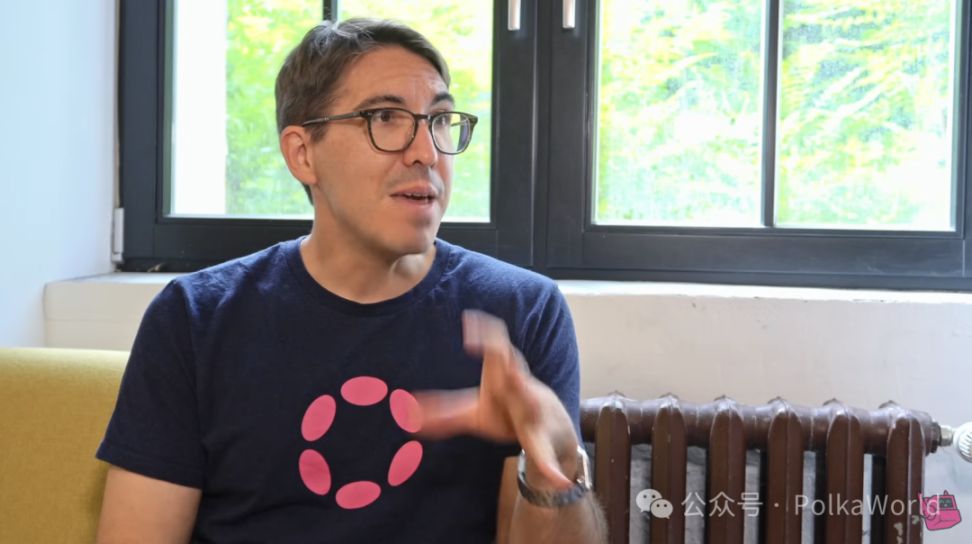
Launching the Polkadot Agents Program
Jay: Let's talk about one of the new mechanisms you're currently advancing. In fact, even before you officially took office, you were already pushing some new proposals, and the one that's been discussed the most recently is probably the "Polkadot Agents" program, right?
This proposal seems to have already been submitted to the "Wish for Change" channel, and the approval rate is as high as 100%? That's really rare. So what's the core idea of this program?
Bill: Simply put, we've observed some "gaps" in the support mechanisms of OpenGov and the entire ecosystem. There are already many on-chain bounty mechanisms, such as event bounties, offline meetups, business development, gaming, etc., as well as regular treasury proposals. But all these tools have certain thresholds and delays, and are not suitable for handling small and urgent needs.
I liken the current ecosystem to a road already paved with cobblestones—each stone is ready, but what's missing is the "cement" to bind them together. "Polkadot Agents" is meant to serve as that "cement."
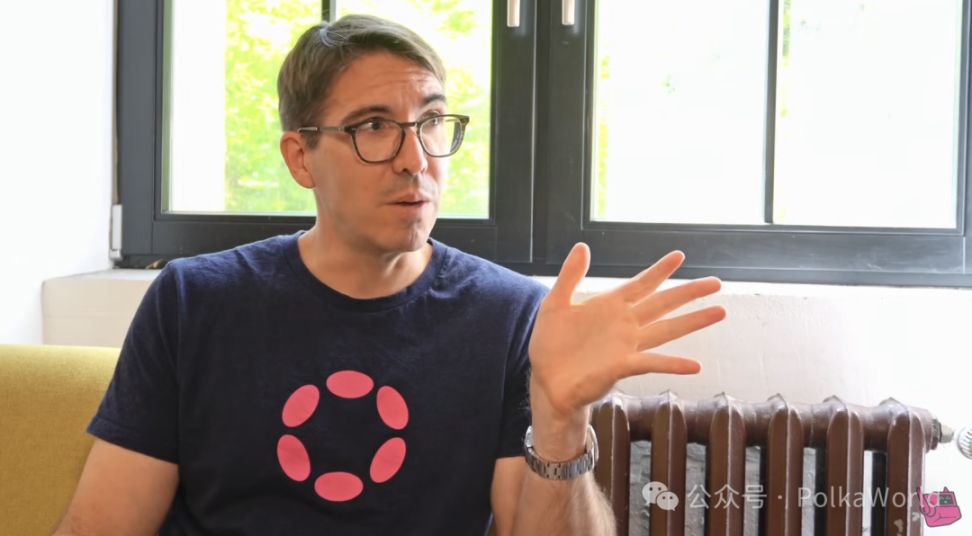
For example: you want to organize a small event on short notice, but there's not enough time to submit an on-chain proposal or apply for a bounty. What do you do? If you are a certified Agent, you can apply directly to us for a small grant, say $500, and we can process it quickly.
Although the Web3 Foundation is a centralized entity and cannot be as fully democratically governed as on-chain, its advantage is speed of response. On-chain processes usually involve multisigs, multiple rounds of voting, and various governance cycles, but we can make judgments more flexibly. For those not yet familiar with OpenGov or who don't have time to study on-chain mechanisms, this quick-response mechanism is especially important.
In summary, Polkadot Agents is a lightweight mechanism focused on solving "small, urgent, and unexpected matters," not a replacement for on-chain governance, and certainly not for supporting large projects.
Jay: So, for example, if someone wants to do a BD trip, attend an event, talk to some people, and get some contacts, can this kind of individual execution task also be supported?
Bill: Absolutely. We very much welcome this kind of spontaneous ecosystem promotion. For example, if you suddenly have the opportunity to attend a conference in Europe or meet with EU officials, and you think this is valuable for promoting Polkadot, as long as you explain the background to us and we assess it as reasonable, we can support your travel expenses.
In fact, we've seen too many things that "deserve support but get stuck in the process." You have the motivation and ability, but just lack a quick-response channel, and that's exactly what Polkadot Agents aims to solve.
Of course, major plans like "I want to host next year's Polkadot Decoded" should still go through the on-chain process. But if you tell me, "I'm meeting the President of France next week and need a plane ticket," and we know who you are and what you've done and trust you, we can immediately allocate funds to support you.
Jay: I understand. So do participants need to "register their identity" first? Is it a bit like KYC? After all, you are a foundation and funding must be compliant.
Bill: Yes, that's a basic prerequisite. As a Swiss foundation, although we hold DOT, we do not participate in on-chain governance, so we must be clear about where the funds go. We've seen people complain on Polkassembly, "Why do we still need identity verification?"—this is the reason.
Of course, our goal is not to restrict, but to ensure trust and efficiency. If you are a certified Agent, I know who you are and know that what you are doing is truly valuable to the ecosystem, so we can quickly make support decisions.
It should be noted that joining Polkadot Agents does not come with a salary, nor is it a job. We just want to make sure that those willing to contribute to Polkadot are not discouraged by having to pay out of their own pocket.
Jay: Well said. So it's about establishing a more flexible communication channel, allowing active members to receive timely support at critical moments in the future, and also stimulating more grassroots energy.
Bill: Yes, that's another key point I want to emphasize. In addition to filling the mechanism gap, this program also helps us stay better connected with key actors in the ecosystem.
For example, we can regularly share the latest Polkadot news and strategic directions with Agents via mailing lists and community channels, so everyone has a clearer understanding of ecosystem development. We can also use this channel to hear more frontline voices and understand where more support is needed, so we can make more strategic adjustments.
Jay: That's really necessary. In the past, many people had to figure out how to use OpenGov on their own, especially during the "Foundation → OpenGov" transition, when information was often fragmented. What you are doing now is actually filling these gaps, right?
Bill: Absolutely correct. We're like building a "bridge." For some old users, this may just be a small gap; but for newcomers, it's a real "chasm." If you've never been involved in on-chain governance, the threshold for OpenGov is indeed very high.
Every few months, I give an OpenGov lecture in PBAX's online course, and many participants can't even figure out "what on-chain governance is for," let alone how to use it or where to start.
Governance is not just about process, but also about many "unwritten rules" and background knowledge. For example, which topics are likely to cause controversy, which proposal methods are more likely to gain consensus—many people don't know. Sometimes, someone launches a referendum directly without ever seeking feedback or communicating with the community in the forum beforehand, resulting in no response or sense of recognition, and ultimately being rejected, which naturally feels frustrating.
So from an educational perspective, we can't just teach people how to use which channel or how to submit a proposal, but also how to integrate into the community, build trust, and gain support.
Jay: Right, at the end of the day, OpenGov is Polkadot's "social layer." You can't just walk into a gathering and start making demands—you have to get familiar and build some trust first.
This "Agents" program just happens to provide everyone with an entry path.
Disclaimer: The content of this article solely reflects the author's opinion and does not represent the platform in any capacity. This article is not intended to serve as a reference for making investment decisions.
You may also like
Bessent: Supreme Court reversal of tariffs is improbable, as they are a key element of Trump’s economic agenda
US Strategic Bitcoin Reserve Stalls Amid Interagency Legal Complications
Large bitcoin investors have accumulated more coins than at any time since the FTX crash in 2022
Trump throws UK automakers into turmoil once again
